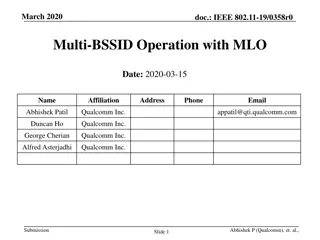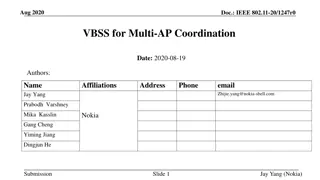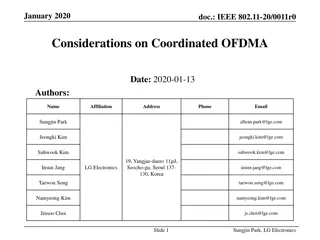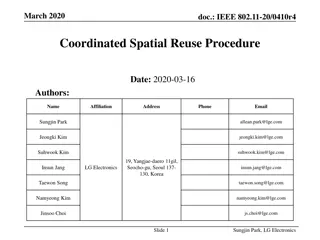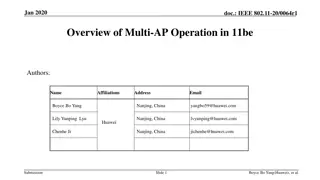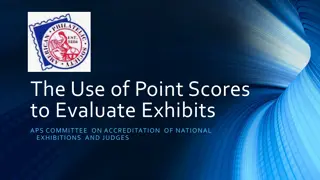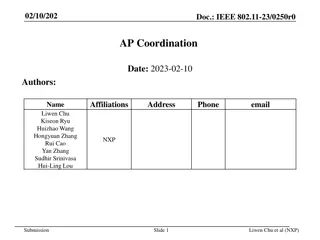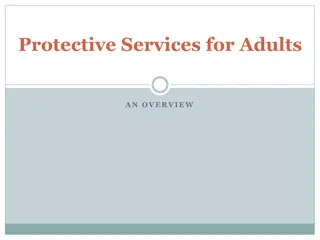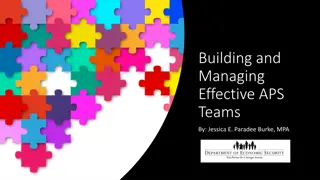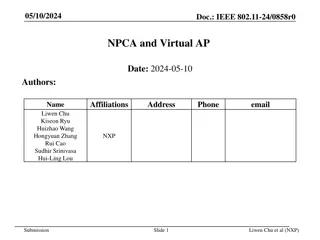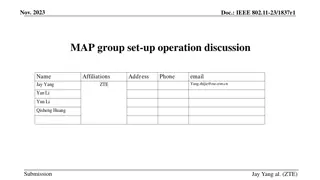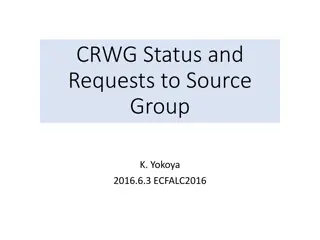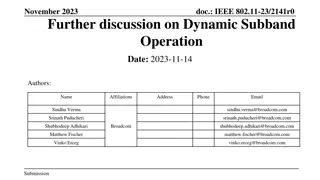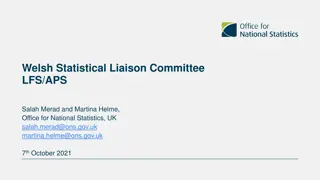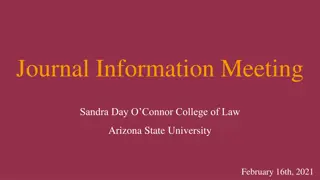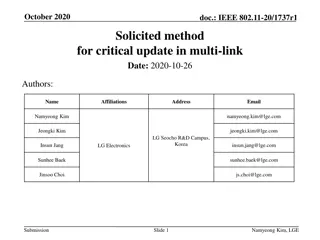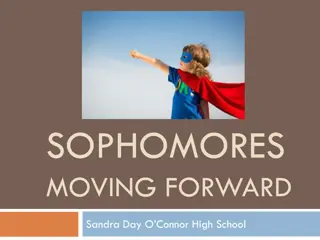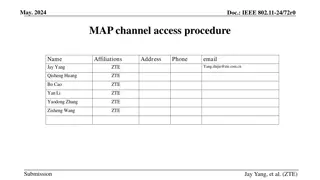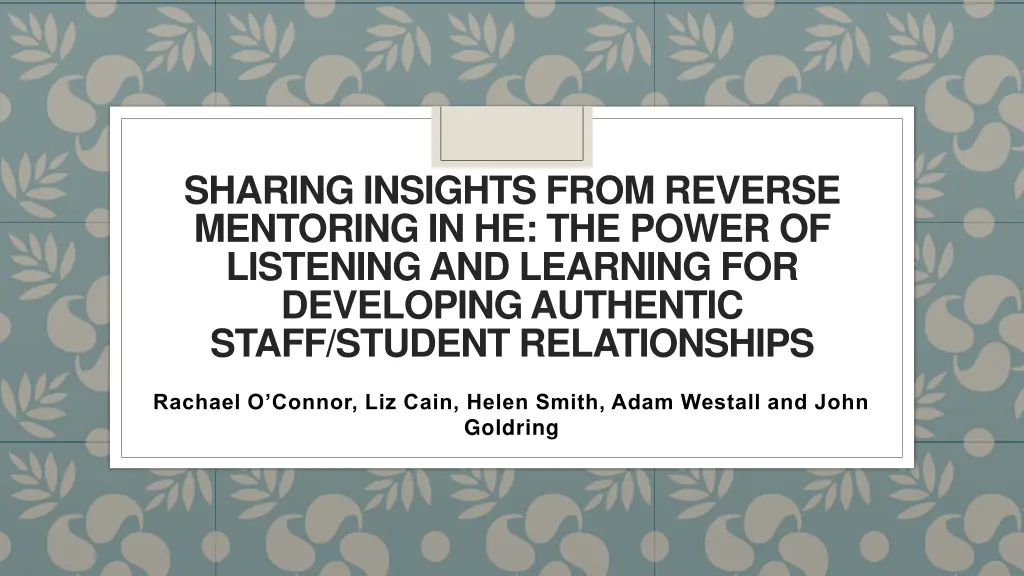
Empowering Relationships Through Reverse Mentoring in Higher Education
Explore the benefits of reverse mentoring in higher education, focusing on the power of listening and learning for fostering authentic staff/student relationships. Learn about the concept, importance, and practical applications of staff/student reverse mentoring, and how it can lead to mutual growth and empowerment. Discover insights from a pilot study in legal education and ongoing initiatives in Leeds that highlight the transformative opportunities this approach offers.
Download Presentation

Please find below an Image/Link to download the presentation.
The content on the website is provided AS IS for your information and personal use only. It may not be sold, licensed, or shared on other websites without obtaining consent from the author. If you encounter any issues during the download, it is possible that the publisher has removed the file from their server.
You are allowed to download the files provided on this website for personal or commercial use, subject to the condition that they are used lawfully. All files are the property of their respective owners.
The content on the website is provided AS IS for your information and personal use only. It may not be sold, licensed, or shared on other websites without obtaining consent from the author.
E N D
Presentation Transcript
SHARING INSIGHTS FROM REVERSE MENTORING IN HE: THE POWER OF LISTENING AND LEARNING FOR DEVELOPING AUTHENTIC STAFF/STUDENT RELATIONSHIPS Rachael O Connor, Liz Cain, Helen Smith, Adam Westall and John Goldring
Who we are: Rachael O Connor, Liz Cain, Helen Smith, Adam Westall and John Goldring
WHAT IS REVERSE MENTORING? a reciprocal and temporally stable relationship between a less experienced mentor providing specific expert knowledge and a more experienced mentee who wants to gain this knowledge characterised by mutual trust and courtesy, it aims at facilitating learning and development of both the mentor and the mentee Source: https://ssir.org/articles/entry/how_reverse_mentoring_can_lead_to_more_equitab le_workplaces Zauchner-Studnicka A Model for Reverse Mentoring in Education International Journal of Educational and Pedagogical Sciences 11(3) 2017
WHY STAFF/STUDENT REVERSE MENTORING? Building on pilot study It makes me feel empowered and that we can make a difference : Reverse mentoring between international students and staff in legal education (2022) European Journal of Legal Education 3(1), 95-126 Lack of role models important for representation Need to develop understanding of ALL staff not just the work of a few Dual benefit reciprocity: transformational opportunities for mentor and mentee Empowering individuals: being heard, developing identity, increasing self-worth Humanisation: breaking down power, hierarchies and finding common ground Missing piece = co-design and inclusion of student voices and clear goal/outcome to tackle criticisms of reverse mentoring as an intervention
Rachaels work in Leeds Pilot project 2019/20 (School of Law) academic/support staff and international students Institutional pilot (partnership with Educational Engagement and LUU) 2020/21 continuing to date senior leaders and students from under-represented backgrounds 3 year LITE fellowship (on-going) using reverse mentoring as a vehicle to develop academic personal tutoring policy in partnership with under-represented students co-designed project Pilot student safety project 2021/22 campus police liaison officer and students from School of Law Partnership with LawCare reverse mentoring scheme in the legal profession involving senior lawyers, junior lawyers and aspiring lawyers (students) to run in 2023/24
WHY STAFF/STUDENT REVERSE MENTORING? Pilot study in 2021: Seeing behind the curtain: Reverse Mentoring within the Higher Education landscape, Teaching in Higher Education https://doi.org/10.1080/13562517.2022.2129963 Asset-based approach Understanding how students from under-represented groups experience HE Opportunity for staff and students to learn from each other: mutually beneficial experience Could this help us address awarding gap?
Reverse mentoring at MMU Pilot Project Second year students from under-represented groups Senior staff from Department of Criminology and Sociology No of Participants 6x6 Matching process Safeguarding (confidentiality and advisory panel) Data Collection- mixed methods Thematic analysis and composite narratives
Over to you question 1 How could reverse mentoring be used in your institution? What problems or issues could it potentially address or identify? 5 minutes to discuss in your breakout group be prepared to share Image source: https://www.linkedin.com/pulse/art-asking- questions-bala-pitchandi/
Question 2 Who would you want to do reverse mentoring in your institution and why? Think about both mentors and mentees 5 minutes to discuss in your breakout group be prepared to share
Question 3 Can you foresee any problems or issues with reverse mentoring in your institution? How might you overcome these? 5 minutes to discuss in your breakout group be prepared to share
REFLECTIONS Small-scale project with far-reaching impact Creating Belonging Seeing behind the curtain Overcoming power imbalance vital Mentors worried about taking lead Mentees worried about exposure But power less of an issue than anticipated Finding commonalties/similarities of experience: developing rapport and trust Seeing each other as humans Seeing the person not the role Students university processes exposed Lecturers not lazy Career trajectory not linear Staff What it s like to be a student today Pressures students face Impact of universities structures Reveals misalignment of habitus Emphasis on what we learnt from students to help develop practice
REFLECTIONS contd Success doesn t have to mean everyone joins in visibility/inspiring is important There is power in creating staff/student communities with shared goals/visions More chances to speak about who I am = becoming more comfortable with who I am Sense of belonging to individual identity (micro); sense of belonging to/with staff body (meso) Build communities of under-representation and spaces/platforms for under-represented voices to lead on issues about them Sense of belonging to/with peer community (meso) shared identities Get students involved in research about them and for them, not just as participants Sense of belonging to/within institution (macro) Reverse mentoring has enormous potential to facilitate change don t be afraid to challenge traditions sometimes you have to stick your neck on the line and be the one
Thank you! Please connect with us and get in touch if you d like to join our network @RachaelOConnor4 r.e.oconnor@leeds.ac.uk

